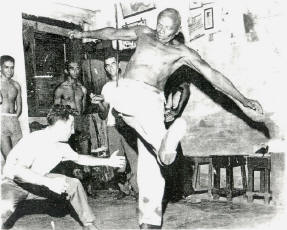
…is that is messes with your translation work.
I’ve just come up for air after finishing a mega-project of about 60 pages in 4 days (which may be a new personal record). On Monday, Tuesday, and Wednesday I did the “raw” translation, and today was dedicated to the revision – or “de-Brazilianifying” the English, as I like to call it – fixing sentence structures and turns of phrase that are more typical of Portuguese than of English.
The problem is that when you’re fluent in a foreign language, you associate its words with the objects or concepts behind them, not with the equivalent words in your native language.
So when you hear or say gato, you’re not thinking “cat,” you’re thinking this:

Unfortunately, it makes working in translation harder. I occasionally get stuck because I can “see” the meanings of words like dotação, edital, and fiscalizar in my mind’s eye, but can’t think of the equivalent English words.
As you might have guessed from the examples, this translation was a business/legal document. It was tough, but not nearly as bad as translating song lyrics, where you have to:
1) Understand the thought or feeling behind the words;
2) Capture the same idea in another language;
3) Make it poetic and pretty.


